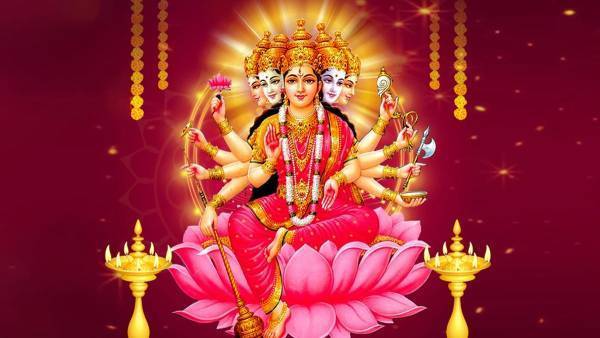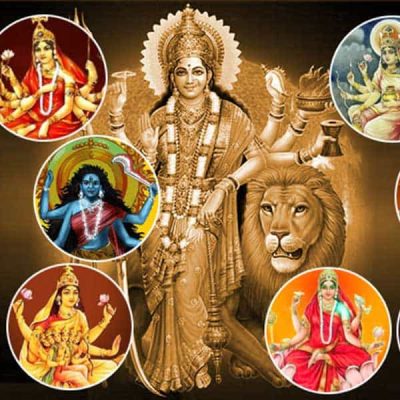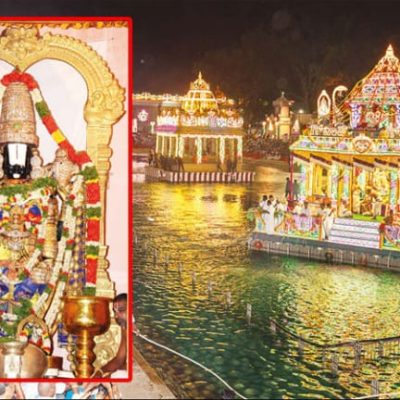Fasting for Navratri? A list of things to do, and not do for 9 days

Navratri fasting is a deeply spiritual practice observed to honor the nine forms of Goddess Durga over nine days. It is not just about abstaining from certain foods but also about cleansing the mind, body, and soul. Here is a list of things to do and avoid during Navratri fasting:
Things to Do During Navratri Fasting:
- Observe Cleanliness:
- Begin each day with a bath and maintain cleanliness throughout the house, especially the area where the goddess is worshipped.
- Keep your surroundings and yourself clean, as it is important for spiritual purity.
- Set Up an Altar:
- Set up a small altar or temple space for Maa Durga. Place a picture or idol of the goddess and light a diya (lamp) daily.
- Decorate the altar with flowers and perform daily aarti and prayers.
- Chant Prayers and Mantras:
- Recite Durga Saptashati, Durga Chalisa, or other devotional hymns dedicated to the goddess.
- Meditate and chant mantras like “Om Dum Durgaye Namah” for invoking the blessings of the goddess.
- Eat Satvik Food:
- Stick to a Satvik diet (pure vegetarian food) during fasting. Include fruits, milk, yogurt, nuts, and selected grains like buckwheat (kuttu), amaranth (rajgira), and singhara (water chestnut).
- Use rock salt (sendha namak) instead of regular salt in your meals.
- Stay Hydrated:
- Drink plenty of water, coconut water, fresh fruit juices, and herbal teas to stay hydrated during the fast.
- Practice Self-Discipline:
- Fast with sincerity and avoid indulgence in negative thoughts or actions. Focus on spiritual growth.
- Maintain a calm and peaceful mind through meditation and spiritual readings.
- Perform Aarti Twice a Day:
- Offer aarti to the goddess in the morning and evening with incense, diya, flowers, and other traditional items.
- Offer Bhog/Prasad:
- Offer simple foods like fruits, milk, and sweets made from allowed ingredients as prasad to Maa Durga after your prayers.
- Visit Temples or Participate in Online Pooja:
- If possible, visit nearby temples for Durga Puja or participate in virtual pooja sessions to stay connected with the celebrations.
Things to Avoid During Navratri Fasting:
- Avoid Non-Vegetarian Food:
- Do not consume meat, fish, eggs, or any form of non-vegetarian food during the fasting period.
- No Onion and Garlic:
- Refrain from eating onion, garlic, and any other strong flavors like mushrooms and leeks, as they are considered tamasic (impure) and are avoided during religious fasts.
- Avoid Alcohol and Tobacco:
- Abstain from alcohol, tobacco, and any other intoxicating substances during Navratri as they are seen as pollutants to the body and mind.
- Do Not Eat Grains and Lentils:
- Do not consume regular grains like wheat, rice, and pulses (dal). Stick to fasting grains such as buckwheat (kuttu), amaranth (rajgira), or water chestnut flour (singhara).
- No Processed or Junk Food:
- Avoid eating processed, fried, or junk food as they are unhealthy and not aligned with the spiritual discipline of fasting.
- Avoid Cutting Hair or Nails:
- It is believed to be inauspicious to cut hair or nails during the fasting period. Many people refrain from this as part of the ritualistic discipline.
- Limit Entertainment and Socializing:
- Limit unnecessary social activities, watching TV, or engaging in entertainment that distracts from the spiritual purpose of the fast.
- Avoid Quarrels and Negative Emotions:
- Refrain from getting into arguments, being angry, or holding grudges during Navratri. This period is meant for self-purification, so maintaining a calm and peaceful demeanor is essential.
- No Use of Regular Salt:
- Regular table salt is avoided during fasting. Use only rock salt (sendha namak) in food preparations.
- Avoid Overeating:
- While fasting, do not overeat even the permitted foods. Practice moderation and mindfulness in eating.
Additional Tips for Navratri Fasting:
- Break the Fast with Prayers: At the end of each day or on the last day of Navratri, break your fast with a small prayer and prasad.
- Stay Positive: Navratri is a time for inner reflection, devotion, and cleansing. Stay positive and compassionate in thoughts, words, and actions.
- Participate in Kanya Poojan: On the eighth or ninth day (Ashtami or Navami), it is customary to worship young girls (Kanjak) by washing their feet and offering food and gifts. This is a significant ritual of Navratri.
conclusion
Navratri fasting is a powerful spiritual practice that goes beyond dietary restrictions. It is a time to purify the mind, body, and soul through self-discipline, devotion, and mindful actions. By following the do’s and avoiding the don’ts, devotees can deepen their connection with Maa Durga, enhance their spiritual growth, and invite divine blessings into their lives. Navratri serves as a reminder to embrace purity, compassion, and inner strength while focusing on spiritual transformation.





